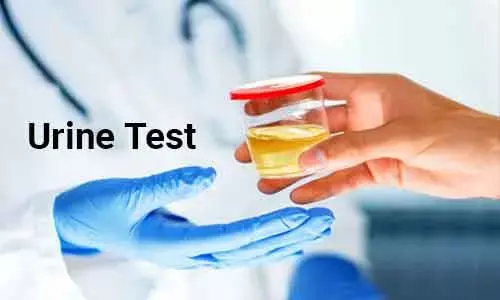- Home
- Medical news & Guidelines
- Anesthesiology
- Cardiology and CTVS
- Critical Care
- Dentistry
- Dermatology
- Diabetes and Endocrinology
- ENT
- Gastroenterology
- Medicine
- Nephrology
- Neurology
- Obstretics-Gynaecology
- Oncology
- Ophthalmology
- Orthopaedics
- Pediatrics-Neonatology
- Psychiatry
- Pulmonology
- Radiology
- Surgery
- Urology
- Laboratory Medicine
- Diet
- Nursing
- Paramedical
- Physiotherapy
- Health news
- Fact Check
- Bone Health Fact Check
- Brain Health Fact Check
- Cancer Related Fact Check
- Child Care Fact Check
- Dental and oral health fact check
- Diabetes and metabolic health fact check
- Diet and Nutrition Fact Check
- Eye and ENT Care Fact Check
- Fitness fact check
- Gut health fact check
- Heart health fact check
- Kidney health fact check
- Medical education fact check
- Men's health fact check
- Respiratory fact check
- Skin and hair care fact check
- Vaccine and Immunization fact check
- Women's health fact check
- AYUSH
- State News
- Andaman and Nicobar Islands
- Andhra Pradesh
- Arunachal Pradesh
- Assam
- Bihar
- Chandigarh
- Chattisgarh
- Dadra and Nagar Haveli
- Daman and Diu
- Delhi
- Goa
- Gujarat
- Haryana
- Himachal Pradesh
- Jammu & Kashmir
- Jharkhand
- Karnataka
- Kerala
- Ladakh
- Lakshadweep
- Madhya Pradesh
- Maharashtra
- Manipur
- Meghalaya
- Mizoram
- Nagaland
- Odisha
- Puducherry
- Punjab
- Rajasthan
- Sikkim
- Tamil Nadu
- Telangana
- Tripura
- Uttar Pradesh
- Uttrakhand
- West Bengal
- Medical Education
- Industry
Urine test in COVID-19 patients predicts kidney injury, death: Study

Urine test in patients admitted with acute COVID-19 predicts kidney injury and death, reports a recent study.
USA: According to the study, in COVID-19 patients, elevated urinary NGAL (uNGAL) was associated with acute kidney injury (development), increased duration and severity of AKI, prolonged hospitalization, the degree of histopathological acute tubular injury, need for dialysis, and death. The findings of the study were presented at the American Society of Nephrology (ASN) Kidney Week 2021.
Kidney injury occurs commonly in COVID-19 patients, but serum creatinine (SCr) is not a sensitive or specific marker of kidney injury. Katherine Xu, Columbia University Irving Medical Center, New York, New York, United States, and colleagues hypothesized that measurement of molecular markers of tubular injury can diagnose COVID-19 associated kidney injury and predict a poor prognosis in a prospective cohort study.
The study included 444 consecutive COVID-19 patients in a New York City Emergency Department from March to April 2020. Blood and urine were collected simultaneously at hospital admission and within 1 day of a positive SARS-CoV-2 test in 70% of patients. Urine NGAL and KIM-1 assays were blinded to clinical data.
Primary outcomes included the AKI diagnosis as defined by AKIN criteria, as well as its duration and severity.
Based on the study, the researchers found the following:
· Elevated urinary NGAL (uNGAL) levels were associated with SCr based AKI (267±301 vs. 96±139 ng/mL).
· uNGAL level >150 ng/mL had 80% specificity and 75% sensitivity to diagnose AKIN stage 2 AKI or higher.
· Higher uNGAL levels were associated with sustained AKI [aOR per SD of uNGAL: 2.67 (1.81-4.06), need for dialysis (aOR: 3.67), shock (aOR: 1.64), prolonged length of stay (aHR: 1.22), and death [aOR=1.62], independent of baseline SCr and pre-existing co-morbidities.
· These associations were also preserved after adjusting for proteinuria measured in the same urine sample.
· NGAL is typically transcribed by distal nephron segments but in COVID-19 kidney biopsies with widespread histopathologic acute tubular injury (ATI), NGAL mRNA expression included proximal tubules.
The authors concluded, "elevated uNGAL in patients admitted with acute COVID-19 was associated with the development of AKI, increased severity and duration of AKI, the degree of histopathological acute tubular injury, shock, prolonged hospitalization, need for dialysis, and death."
Reference:
PO0172 — 2021 ASN, Urine Test Predicts Kidney Injury and Death in COVID-19
Dr Kamal Kant Kohli-MBBS, DTCD- a chest specialist with more than 30 years of practice and a flair for writing clinical articles, Dr Kamal Kant Kohli joined Medical Dialogues as a Chief Editor of Medical News. Besides writing articles, as an editor, he proofreads and verifies all the medical content published on Medical Dialogues including those coming from journals, studies,medical conferences,guidelines etc. Email: drkohli@medicaldialogues.in. Contact no. 011-43720751


